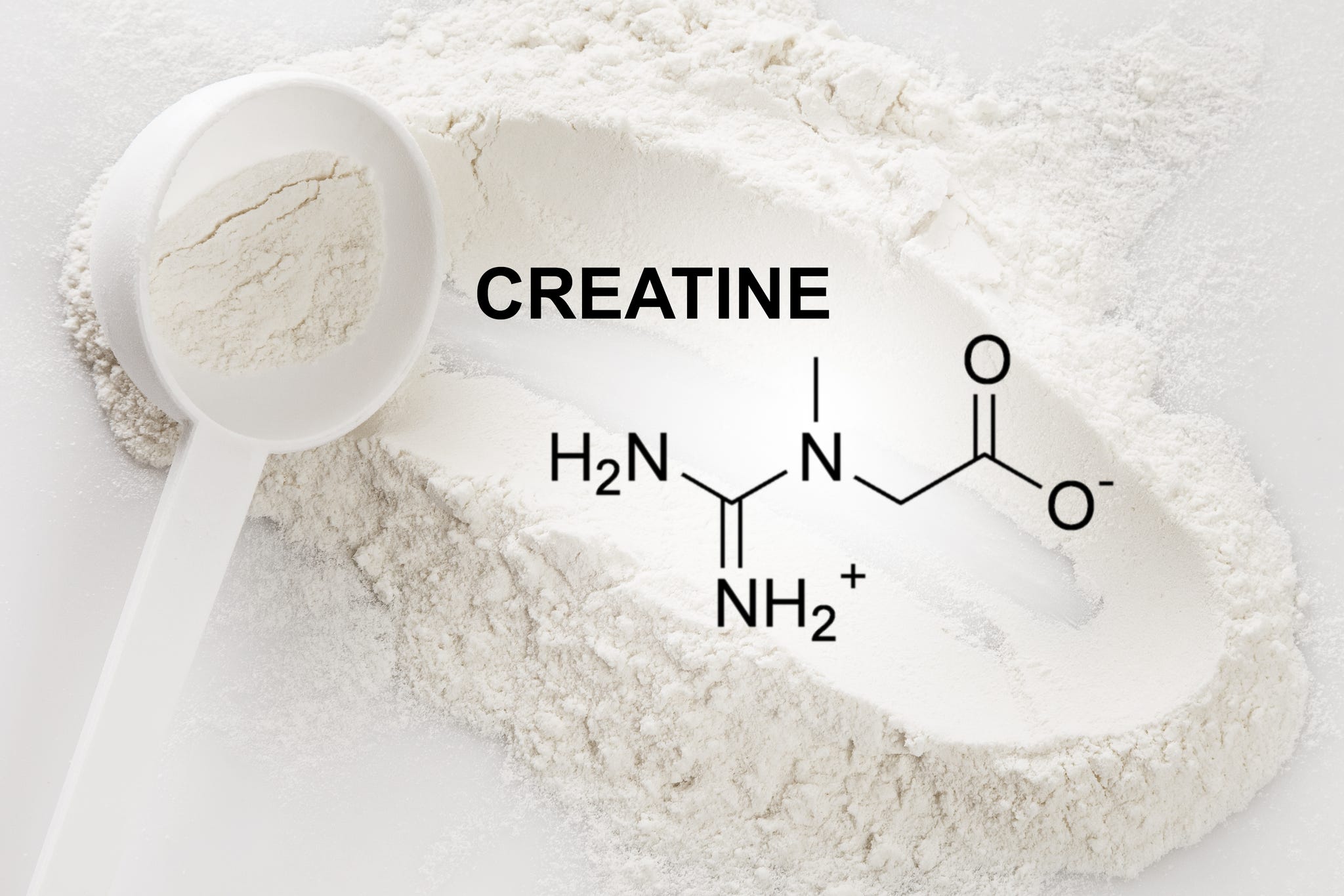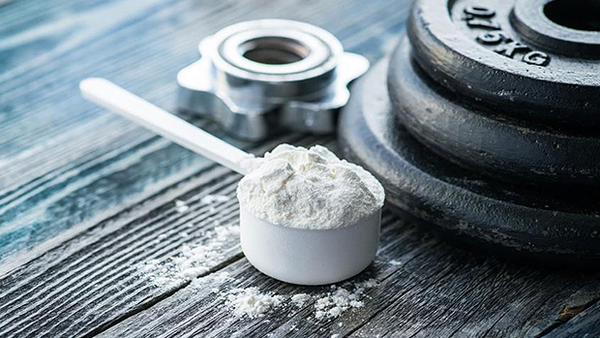Creatine Monohydrate Supplements
Pros and Cons

Creatine monohydrate is one of the most researched and popular supplements in the fitness world, renowned for its potential to enhance athletic performance, increase muscle mass, and improve strength. However, like any supplement, creatine monohydrate comes with its own set of pros and cons. Let's delve into the benefits and drawbacks of this widely used supplement:
Pros:
- Increased Muscle Creatine Levels: Creatine is naturally found in small amounts in foods like red meat and fish. However, supplementing with creatine monohydrate can significantly increase the concentration of creatine in muscles, allowing for greater energy production during high-intensity exercise.
- Improved Strength and Power: Research suggests that creatine supplementation can enhance strength and power output, particularly during short-duration, high-intensity activities like weightlifting, sprinting, and jumping. This can lead to greater gains in muscle mass and improved athletic performance over time.
- Enhanced Muscle Recovery: Creatine has been shown to reduce muscle damage and inflammation following intense exercise, potentially speeding up the recovery process. This can allow individuals to train more frequently and with higher intensity, leading to greater overall gains in muscle mass and strength.
- Increased Anaerobic Performance: Creatine supplementation has been linked to improvements in anaerobic performance, including increased sprint performance, faster acceleration, and higher power output. Athletes involved in sports that require short bursts of intense effort may benefit significantly from creatine supplementation.
- Safe and Well-Tolerated: Creatine monohydrate is one of the most extensively researched supplements available, and numerous studies have demonstrated its safety and efficacy when used as directed. When consumed in recommended doses, creatine supplementation is generally well-tolerated with minimal side effects.
Cons:
- Water Retention: One common side effect of creatine supplementation is water retention, which can lead to temporary weight gain. This occurs as creatine draws water into muscle cells, causing them to swell and appear larger. While this can enhance the appearance of muscle fullness, it may be undesirable for individuals seeking to minimize water retention or maintain a certain weight.
- Gastrointestinal Discomfort: Some individuals may experience gastrointestinal discomfort, including bloating, cramping, and diarrhea, when taking creatine supplements. These side effects are typically mild and temporary, but they may be bothersome for some users.
- Individual Variability: While many individuals experience significant benefits from creatine supplementation, others may not respond as favorably. Response to creatine can vary depending on factors such as genetics, diet, training status, and individual physiology. Some people may experience little to no improvement in performance or muscle gains despite supplementing with creatine.
- Potential for Misuse: Like any supplement, creatine monohydrate should be used responsibly and in accordance with recommended guidelines. Some individuals may misuse creatine by taking excessively high doses or using it for prolonged periods without proper cycling, which can increase the risk of side effects and potential health issues.
- Not Suitable for Everyone: While creatine supplementation is generally safe for healthy individuals, it may not be suitable for everyone, particularly those with certain medical conditions or contraindications. Individuals with kidney disease, liver disease, or a history of kidney stones should exercise caution and consult with a healthcare professional before using creatine supplements.
Creatine monohydrate supplements offer a range of potential benefits for athletes and fitness enthusiasts seeking to enhance performance, increase muscle mass, and improve strength. However, it's essential to weigh the pros and cons carefully and consider individual factors before incorporating creatine into your supplement regimen. When used responsibly and in conjunction with a balanced diet and proper training program, creatine monohydrate can be a valuable tool for optimizing athletic performance and achieving fitness goals.
How Much and When to Take Creatine Monohydrate Supplement
The optimal dosage and timing of creatine monohydrate supplementation can vary depending on individual factors such as body weight, exercise intensity, training goals, and personal preference.
However, there are general guidelines that can help maximize the effectiveness of creatine supplementation.
Dosage:
- Loading Phase: Many people choose to begin creatine supplementation with a loading phase, which typically involves consuming around 20 grams of creatine monohydrate per day, divided into four equal doses of 5 grams each, for 5-7 days. This loading phase helps to quickly saturate the muscles with creatine, allowing for faster results.
- Maintenance Phase: Following the loading phase, a maintenance dose of creatine is typically around 3-5 grams per day. This smaller dose is sufficient to maintain elevated muscle creatine levels over time. Some individuals may choose to skip the loading phase altogether and simply start with a maintenance dose, which can be equally effective but may take longer to see results.
- Individual Variability: It's important to note that individual response to creatine supplementation can vary. Some people may respond well to lower doses, while others may require higher doses to experience benefits. Experimentation with different dosages may be necessary to determine what works best for you.
Timing:
- Pre-Workout: Taking creatine before a workout may help increase muscle creatine stores and provide an immediate source of energy for high-intensity exercise. Consuming creatine alongside a meal or snack that contains carbohydrates can enhance its absorption and uptake by muscle cells.
- Post-Workout: While timing isn't as critical with creatine as it is with some other supplements like protein or carbohydrates, taking creatine after a workout can still be beneficial. This timing allows for replenishment of depleted creatine stores and supports muscle recovery and growth.
- Consistency: The most important aspect of creatine supplementation is consistency. Whether you choose to take creatine before or after workouts, or at any other time of day, the key is to consume it regularly to maintain elevated muscle creatine levels over time.
- Rest Days: On rest days when you're not exercising, it's still important to take your daily dose of creatine to maintain consistent muscle saturation levels. You can take it at the same time each day, regardless of whether you're working out or not.
- Combination with Other Supplements: Creatine can be combined with other supplements such as protein, carbohydrates, and amino acids to enhance its effectiveness. Some pre-workout supplements also contain creatine alongside other performance-enhancing ingredients.
Hydration:
It's important to stay well-hydrated when supplementing with creatine, as it can cause temporary water retention in muscle cells. Be sure to drink plenty of water throughout the day to support optimal hydration and overall health.
Creatine monohydrate supplements offer a range of potential benefits for athletes and fitness enthusiasts seeking to enhance performance, increase muscle mass, and improve strength. However, it's essential to weigh the pros and cons carefully and consider individual factors before incorporating creatine into your supplement regimen. When used responsibly and in conjunction with a balanced diet and proper training program, creatine monohydrate can be a valuable tool for optimizing athletic performance and achieving fitness goals.
The recommended dosage of creatine monohydrate is typically around 3-5 grams per day for maintenance, with or without a loading phase. Timing can vary based on personal preference, but taking creatine before or after workouts may offer benefits for performance and recovery. Consistency is key, so be sure to take creatine regularly to maximize its effectiveness. As always, it's a good idea to consult with a healthcare professional or certified fitness expert before starting any new supplement regimen.
Thank you for reading!
Find useful articles to read: HERE

























































